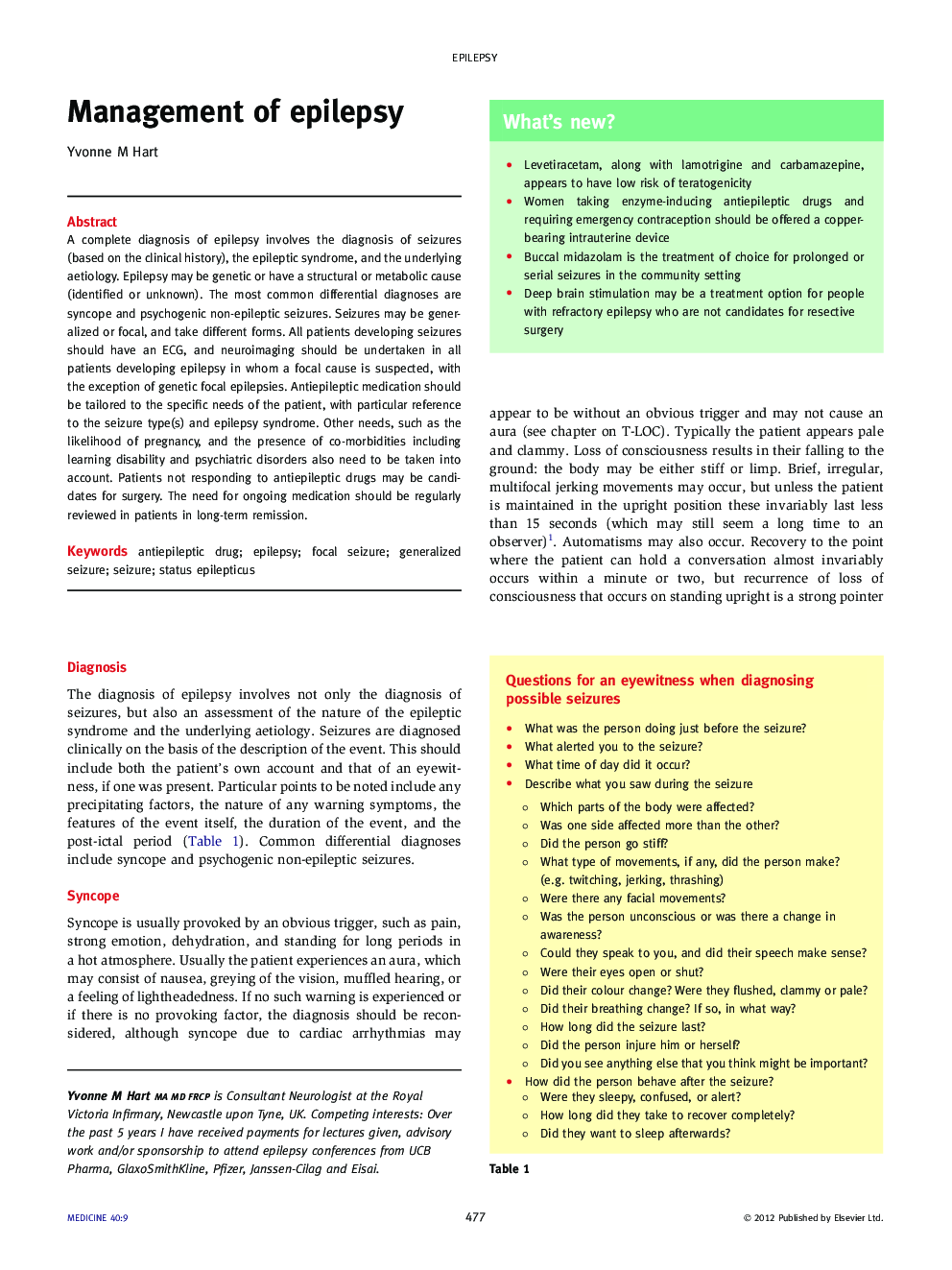| Article ID | Journal | Published Year | Pages | File Type |
|---|---|---|---|---|
| 3806796 | Medicine | 2012 | 7 Pages |
Abstract
A complete diagnosis of epilepsy involves the diagnosis of seizures (based on the clinical history), the epileptic syndrome, and the underlying aetiology. Epilepsy may be genetic or have a structural or metabolic cause (identified or unknown). The most common differential diagnoses are syncope and psychogenic non-epileptic seizures. Seizures may be generalized or focal, and take different forms. All patients developing seizures should have an ECG, and neuroimaging should be undertaken in all patients developing epilepsy in whom a focal cause is suspected, with the exception of genetic focal epilepsies. Antiepileptic medication should be tailored to the specific needs of the patient, with particular reference to the seizure type(s) and epilepsy syndrome. Other needs, such as the likelihood of pregnancy, and the presence of co-morbidities including learning disability and psychiatric disorders also need to be taken into account. Patients not responding to antiepileptic drugs may be candidates for surgery. The need for ongoing medication should be regularly reviewed in patients in long-term remission.
Related Topics
Health Sciences
Medicine and Dentistry
Medicine and Dentistry (General)
Authors
Yvonne M. Hart,
